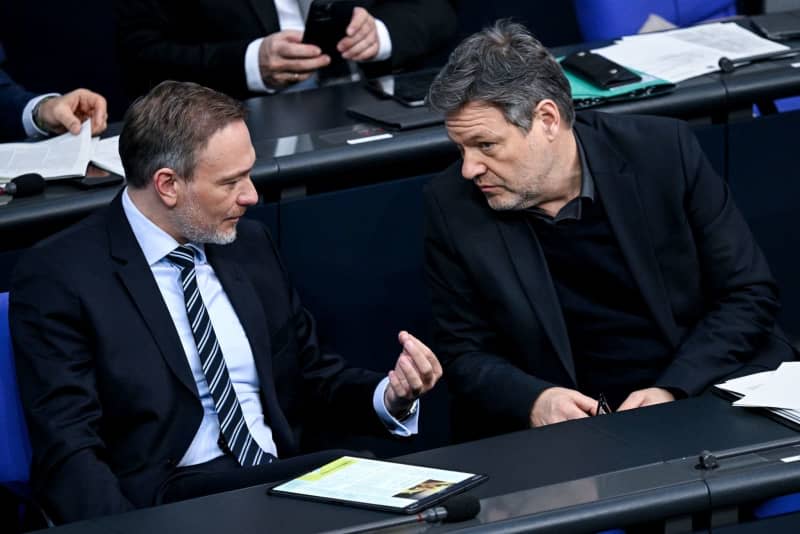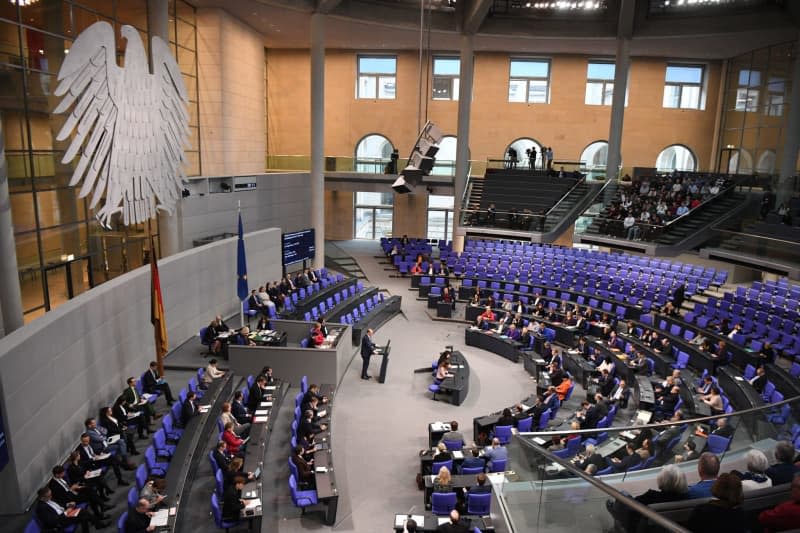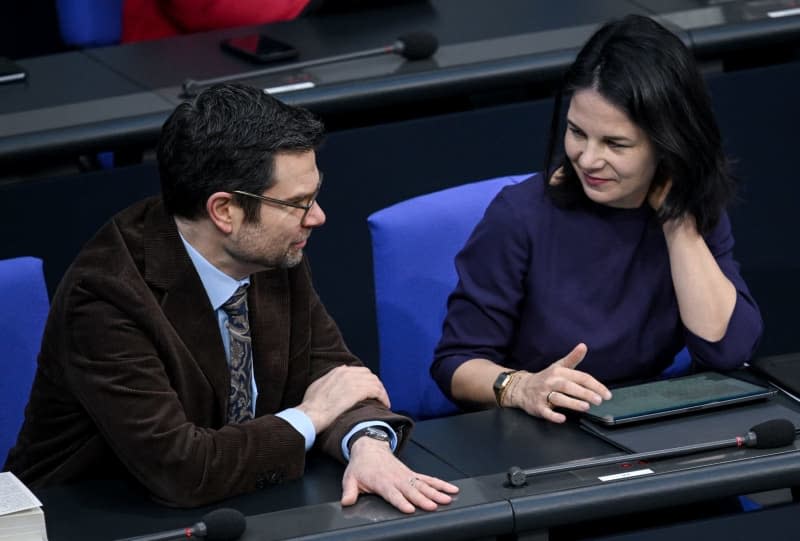German parliament signs off on 2024 budget after late wrangling

- Oops!Something went wrong.Please try again later.
The German parliament or Bundestag finalized its 2024 budget on Friday, agreeing to keep the so-called debt brake and borrow around €39 billion ($42.5 billion).
After a delay of several weeks, the hard-fought budget was passed and provides for expenditures of €476.8 billion.
If borrowing remains at €39 billion, the debt brake would be adhered to again for the first time since the outbreak of the coronavirus pandemic. Germany's Basic Law aims to limit borrowing but allows for a certain amount of leeway in the event of poor economic expectations.
The Bundesrat, or upper house, is expected to give the green light for the budget later on Friday.
The 2024 budget posed a particular challenge for Germany's governing coalition. Following a judgement by the Constitutional Court on the illegal use of funds earmarked for coronavirus spending, billions of euros suddenly had to be found to plug a gap.
The Social Democrats, Greens and Free Democrats agreed on a limited austerity programme that includes a higher ticket tax for passenger flights and the gradual abolition of tax benefits on agricultural diesel for farmers.
These measures will be implemented in a separate law which still has to pass the Bundesrat.
The state subsidy for electric cars already expired last year, days after the agreement was reached. Stricter rules are also set to apply for the citizens allowance, a form of welfare.
The opposition accused the government of excessive spending, with Christian Democrat lawmakers saying the coalition is only talking about saving while continuing to spend beyond its means.
Finance Minister Christian Lindner defended the government's plans, saying that the coalition was demonstrating "organizational ambition," including record investments of €70.5 billion in railways, roads and networks.
He also noted that the tax rate for the population is falling.
The governing parties' budget chiefs also defended the plans, with SPD budget officer Dennis Rohde saying, "consolidation in this country will not take place on the backs of the weakest members of our society. That is why this is a good budget."
The defence budget runs to some €52 billion, which is separate from the billions for the "special fund" to upgrade the armed forces, or Bundeswehr.
The biggest savings compared to the previous year are in the Health Ministry, where planned spending related to the pandemic was cut.



